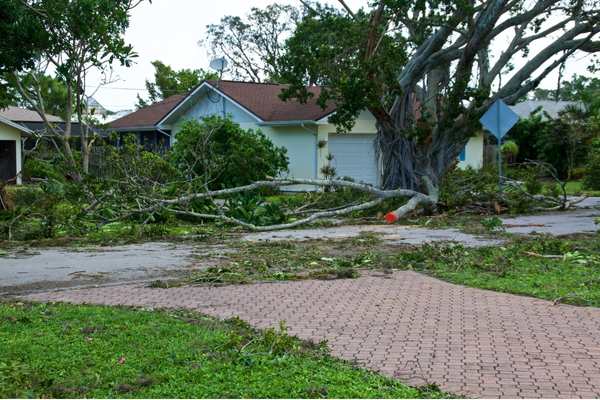If you buy a property, you need the deed to prove that you are the rightful owner. Additionally, the deed has all the information about the property. In this blog post, we’re sharing everything you need to know about property deeds in Texas and how to get a deed for a house.
What is a Property Deed?
A property deed or house deed is a legal document that transfers ownership from the seller (the grantor) to the buyer (the grantee). Ultimately, the deed is the legal tool declaring who owns the property. When someone sells property or house, both the buyer and seller sign the deed to transfer ownership.
The deed contains all relevant information about the property, including:
- Names of the buyer and seller
- A description of the property
- Date of the sale
- The purchase price
Types of Deeds for a House
There are many different types of property deeds. The differences between them include the covenants and warranties communicated by the seller. For example, some property deeds offer more protection to the seller. Other deed types favor the buyer.
There are different types of deeds in every state. These deeds can protect you from various issues that may come up during or after a sale.
General Warranty Deed
A general warranty deed is a legal document proving that the seller fully owns the property. This deed also guarantees that the property is free from any debts or other obligations.
A general warranty deed is the best deed to get when you are the grantee. The reason is that the grantor promises that they have complete ownership of the property before they sell it to you. However, this is a riskier move for the seller because they are responsible if anything goes wrong.
A general warranty deed also guarantees that the property’s title is clear and that any third party won’t be able to challenge it.
Special Warranty Deed
A special warranty deed offers less protection to the buyer than a general warranty deed. It only guarantees that the property was not encumbered (meaning there were no liens or mortgages) while the seller had ownership. Ultimately, this could mean there are liens or mortgages from before the seller owned it.
Sometimes businesses, banks, and organizations use a special warranty deed to avoid any problems with the property. However, if you’re the buyer, you might want to have a lawyer look over the special warranty deed before you sign it. For instance, a real estate lawyer in Texas will help ensure that there are no surprises down the road.
Quitclaim Deed
Let’s do a quick overview. The general warranty deed ensures a clear title and no liens or debts. The special warranty deed covers the seller’s time of ownership but not anything before that. However, a quitclaim deed doesn’t offer any of these guarantees.
Family members or people who trust each other generally use quitclaim deeds. The reason is that it is easier to put together than other deeds. Additionally, the people involved are usually already aware of any problems with the property, like outstanding debts.
When you sign a quitclaim deed, the seller doesn’t offer any guarantees to the buyer. The deed also doesn’t promise that the seller owns the home. Therefore, if you’re thinking about signing a quitclaim deed, speaking with a real estate lawyer in Texas first is essential. They can help explain the risks and potential problems associated with this deed.
Make sure you understand all your options before you sign a deed for a house.
Special Purpose Deed
A special purpose deed is usually only for particular circumstances, and they don’t offer the grantee much protection. These deeds are often used in court proceedings or with a person acting in an official capacity.
In general, individuals often don’t use special purpose deeds because they come with many risks.
- Deed in lieu of foreclosure: The borrower gives the property to the lender using a deed to avoid foreclosure on an unpaid mortgage.
- Tax Deed: If someone doesn’t pay their property taxes, the government can take ownership of the property. The government will then auction off the property to cover the unpaid taxes.
- Deed of Gift: The deed of gift is a way to transfer property ownership from one person to another without any compensation.
- Executor’s deed: This deed is necessary when someone dies with a will. The estate executor uses this deed to ensure the grantee stated in the will receives the property
- Administrator’s deed: When someone dies without a will, a court appoints an administrator who uses this deed to give the property to a grantee.
Deed for a House: What’s Included?
There is no one specific way to do a deed. However, the document must be physical and in writing. The requirements for a deed vary by state, but there are some common elements.
Here’s some of the information you might see:
-
Names and addresses: The names and addresses of the grantor (seller) and grantee (buyer) for future contact.
-
Specific description of the property: The legal description of the property is a written statement that identifies the boundaries of the property. The description will include the particular dimensions of the land and any relevant features or landmarks.
-
Signature of the grantee: The grantee signs their full name.
-
Words of conveyance or granting clause: This statement communicates the ownership transfer to the grantee. Additionally, it explains the grantee’s rights.
-
Consideration clause: This clause states that the grantor received compensation for the property. Compensation usually means money, and the dollar amount will be listed.
When should you call a Real estate Lawyer in Texas?
There are a few key moments when consulting with or hiring a real estate lawyer might be helpful. This includes when you are buying a home and need to sign a deed, which is a crucial document. Making sure that all of the paperwork is in order can help prevent any problems in the future.
If you’re selling a property, it can also be helpful to hire a real estate lawyer. This lawyer can help you review the contract and deed before moving forward. If there are any problems with the deed, your lawyer will be able to help you fix them.
It is good to have a lawyer look at your contract before you sign it if you are buying or selling a home.
Why hire a Real Estate Lawyer in Texas?
Selling or buying property in Texas can be a complex process, especially if you’re unfamiliar with the ins and outs of real estate law.
If you’re selling your home in Texas, you should hire a lawyer specializing in real estate transactions. Dooley Noted Law will be able to make sure that the process goes smoothly and that all the necessary paperwork is correct.
Schedule your free consultation today! We would be happy to answer any of your questions.




